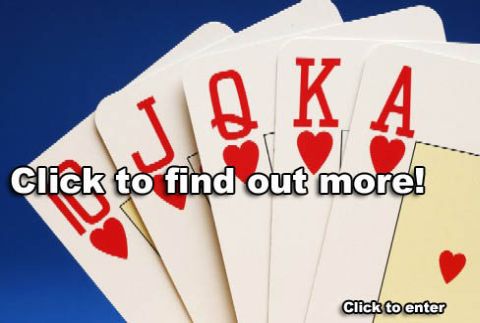Deceptive Tactics

Deception is an important part of every successful player's strategy. If your bets
and raises always mean your hand is strong and your cheeks always mean you
have a weak hand, observant opponents will have a tremendous advantage since
they will always know the strength of your hand. We have already discussed some
ways to add deception to your game with bluffs, semi-bluffs, and check-raises.
Other deceptive tactics include free cards, slowplaying, and inducing blurts or calls.
Free Cards
A free card is when you receive a card without having to call a bet. In Hold'em,
normally you try for a free card by either betting or raising on the flop, hoping that
your opponents will check to you on the turn when the bets are more expensive. In
reality, the card you receive is not free as you had to "pay" for it on the flop, but
these flop bets are cheaper than calling a turn bet.
There are several advantages to try for a free card:
- If your hand does not improve, you might be able to see an additional card
for free that could help you win the hand. The main intention of trying for a
free card is to allow you to see two cards for a cheap price. For example, you
hold A5 on a KT5 flop. If an opponent bets, you might raise hoping that the
bettor will check to you on the next round. If so, you are now able to see both
the turn and river card without having to call a bet on the turn. In many
situations, you are getting good pot odds when you are able to buy a free
card successfully.
-
Your hand might improve on the next card and you can continue to bet
having gained the additional small bet on the flop. In the example above, if
an ace or 5 comes on the turn, you just continue to bet the hand.
-
Buying a free card is a cheap way of calling opponents to the river when you
are not sure whether or not you have the best hand Sometimes you are in
situation where you are unsure whether or not to fold. For example, you hold
A ♣ 4 ♣ in late position and the flop come A ♦ 9 ♥ 2 ♠. A player bets into you
who could have either a pair of ace or a hand like T9. You could raise hoping
to take a free card on the turn with the intention of calling a river bet. You
"save" yourself 1/2 of big bet if your opponent has a better hand compared to
simply calling your opponent on each street.
The problem with trying for free cards is that sometimes the strategy backfires if an
opponent either reraise or comes out betting on the turn. Let's look at an example.
A middle position player calls and you call on the button with J ♦ T ♦. Three players
see the flop of Q ♦ 7 ♦ 5 ♣. The big blind bets and the middle position player folds. If
you raise, four things could happen:
- Your opponent might fold if he only has a middle pair.
-
Your opponent might call and check the turn. In this case, if no diamond
comes you have the option of checking and seeing the river card for "free."
-
Your opponent might call and bet out on the turn if a scare card does not come.
-
Your opponent might reraise.
In the first two cases, your strategy is successful regardless of whether or not you
hit the flush. In the last two cases, your strategy has backfired and will cost you
more bets for your draw. Trying for free cards works best when there is some
chance that your opponents will fold, since you now have two ways for your raise to
be successful.
Let's reverse roles for a minute. When you expect that your opponent is trying for a
free card, you should make them pay a higher price for playing by either reraising or
betting out the turn.
Advanced Concept: Do not give free cards when you expect that your opponents are on a draw.
Internet
On the flop, some players like to instantaneously raise on the flop by using the "raise in turn" button
before you even bet. These players are sometimes trying to act strong so that they can get a free
card on the turn. If your opponent is this type of player, reraise to charge him the maximum price for
his draw.Sometimes it is correct to just call a flop raise and then bet out the turn if no scare
card comes. This becomes correct when there are many scare cards such as
flushes and overcards that make your hand the dog on the flop but the favorite on
the turn if it is favorable.
NEXT...Slowplaying

